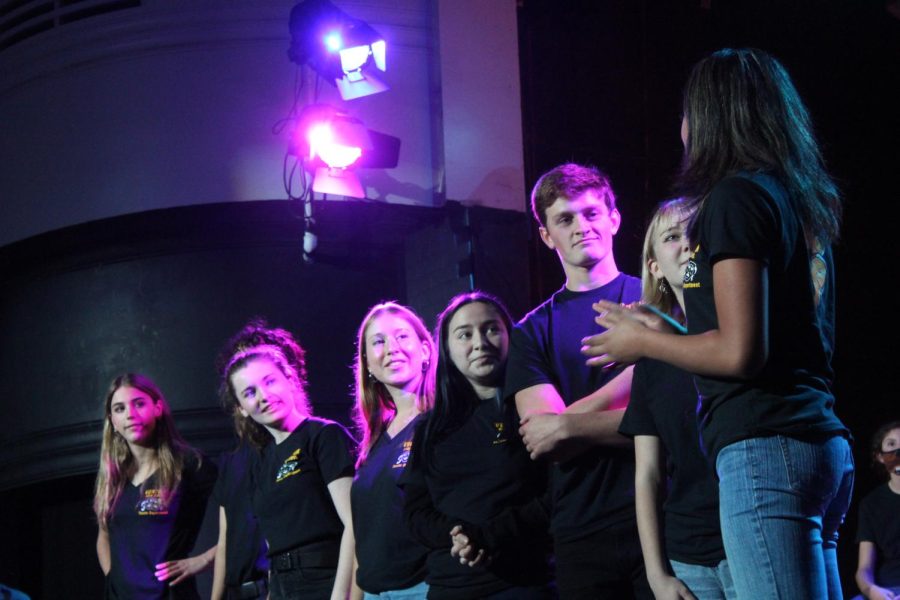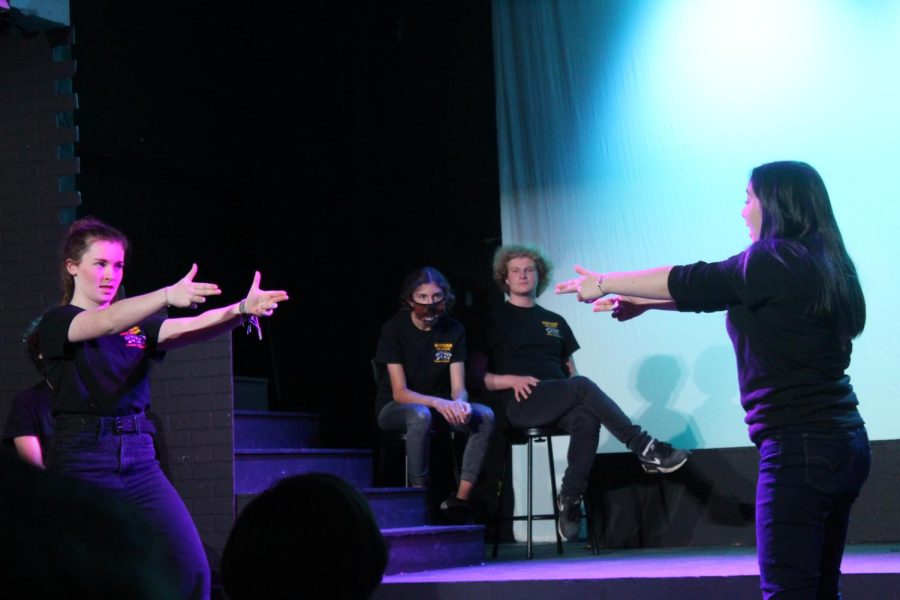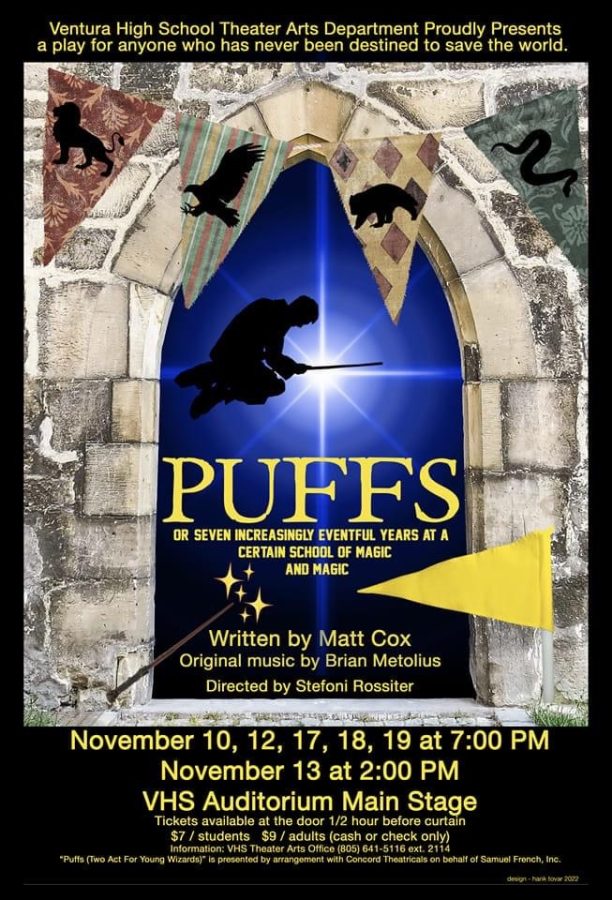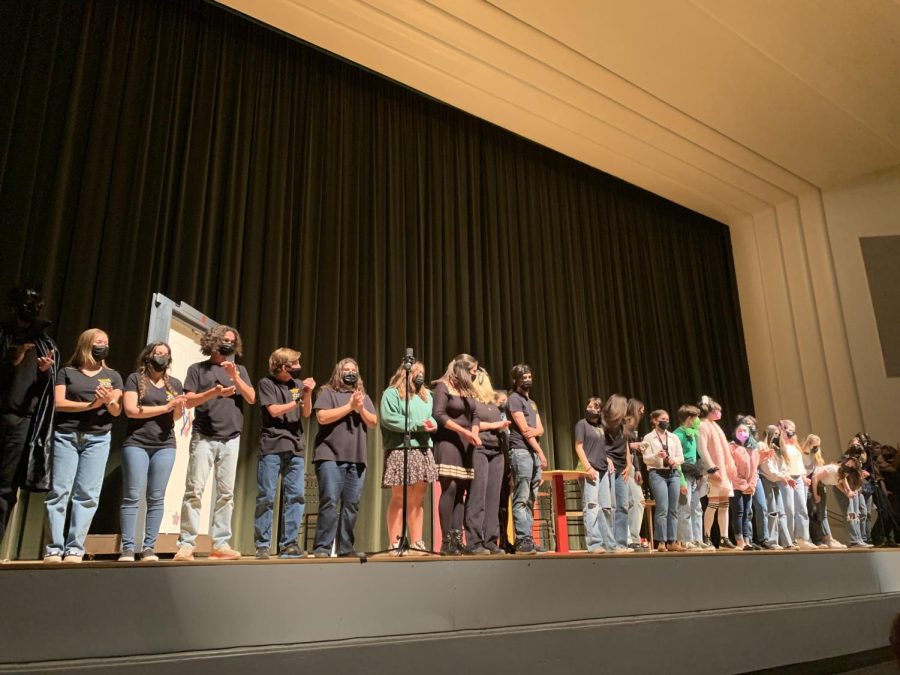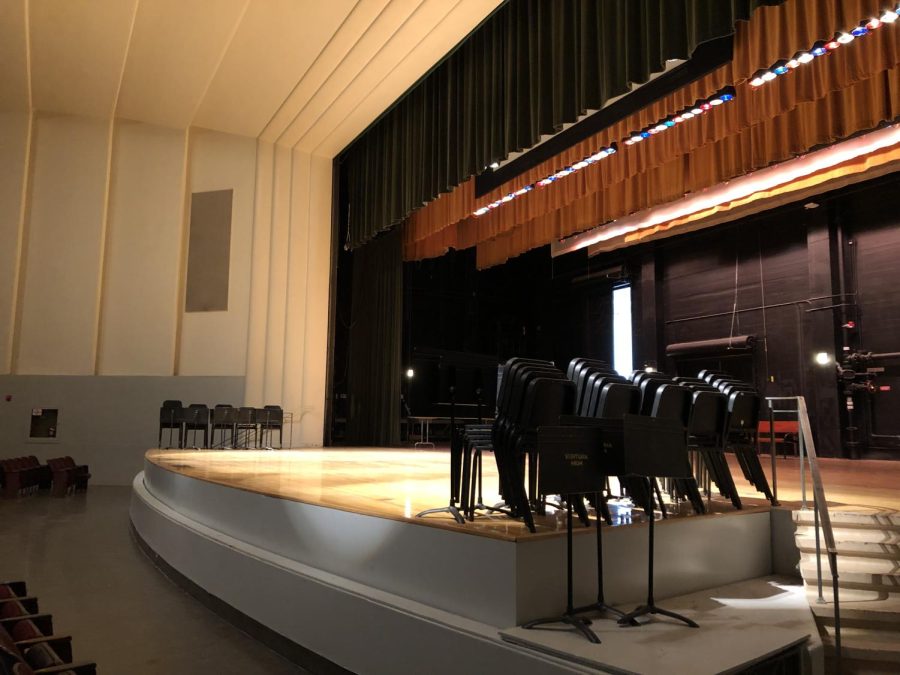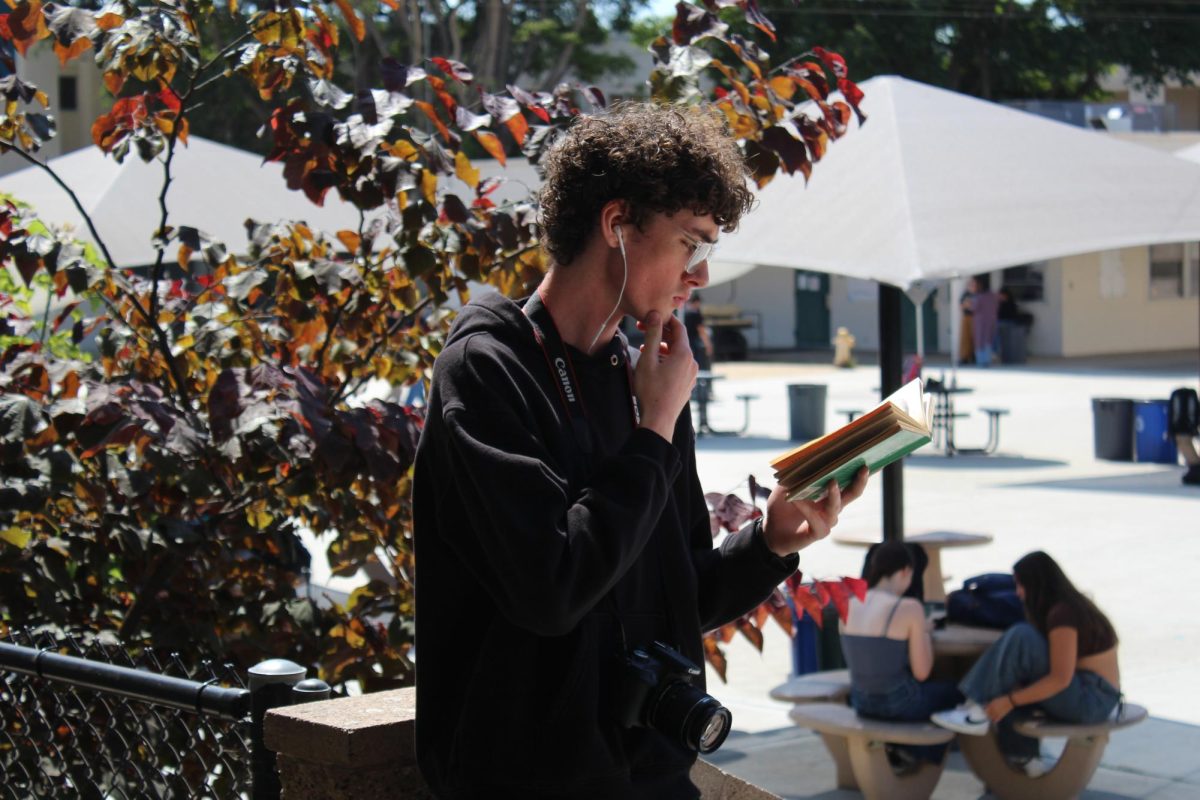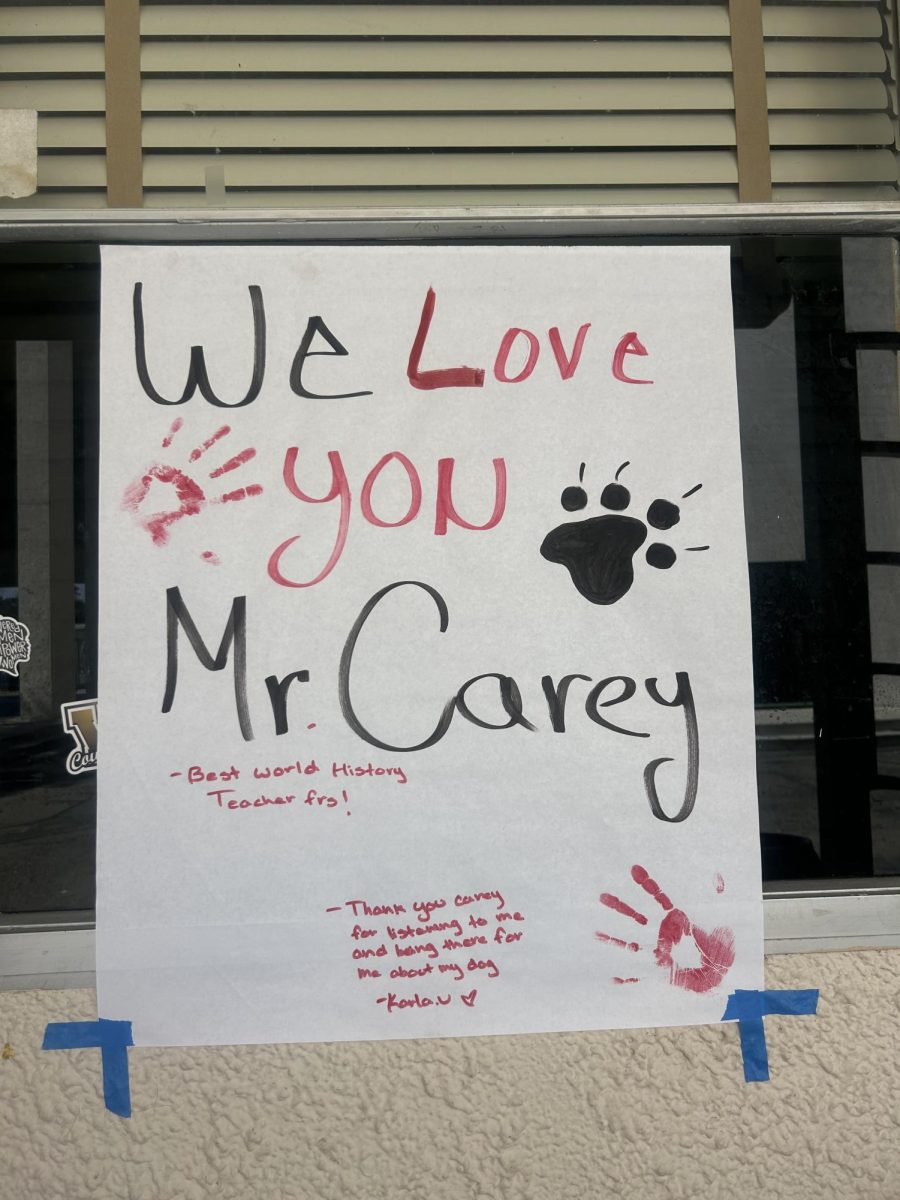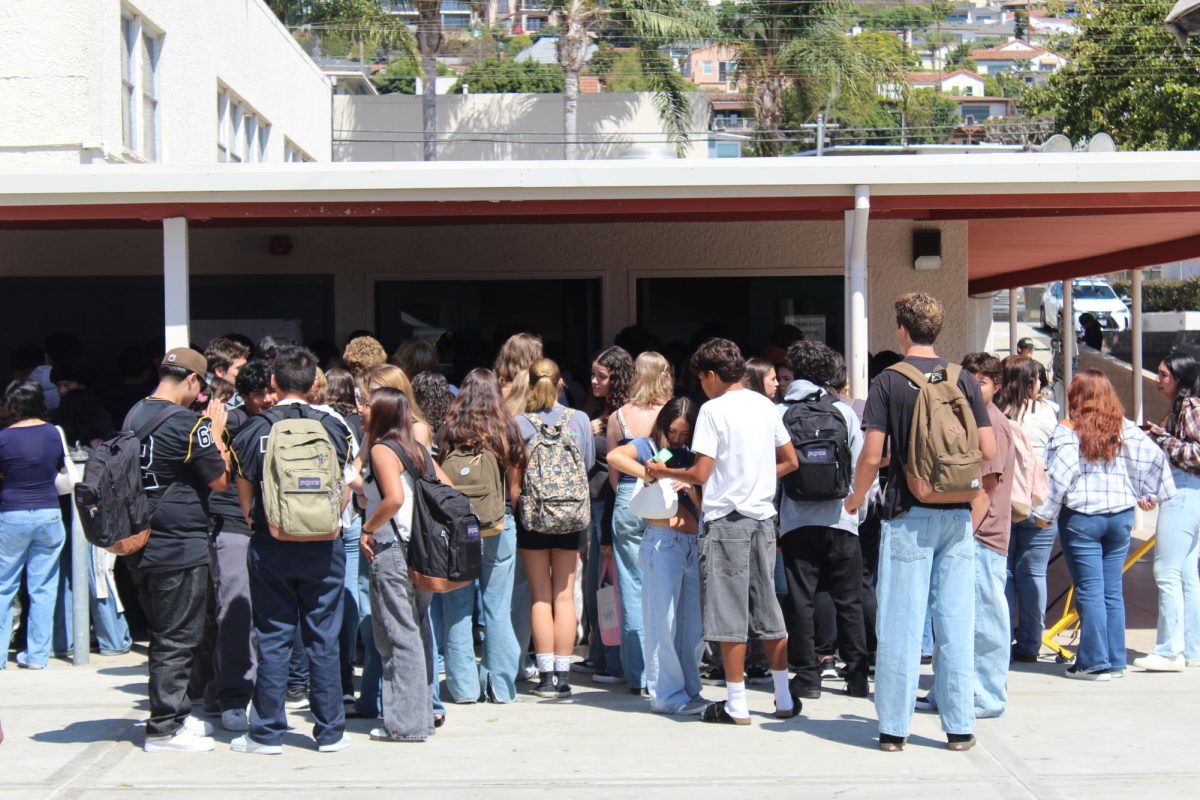When students think of the theatre, their minds go to choreography, or singing — perhaps the overacting that sometimes shows up on high school stages. However, the flamboyance and negative stereotypes surrounding Drama can obscure the plus side: VHS’s program has changed many students’ lives (including mine) for the better.
The first two-ish weeks of drama aren’t spent doing scenes or projects. Instead of working on the stuff you’ll see in most of Drama’s stage productions, like the play or musical, students play games. Most of them are simple — like “murder in the theatre,” where a murderer winks at students to “kill them” as the class guesses their identity; or “park bench,” in which one person must get a random stranger to leave a bench without touching them. However, under the surface, these games are intended to teach us skills that will help us onstage — from nonverbal communication, to watching our surroundings, to coming up with zany stories on the fly.

“It’s a very specific choice that I make,” said Stefoni Rossiter, who teaches Drama at VHS. “I think that Drama can sound really scary to people who haven’t done it before. I know that a lot of times when people come into Drama, they think I’m going to make them act on the first day, so [we] play games. They’re acting, but they don’t really know they’re acting, and then I’m like, ‘Guess what? You’re acting!’ Then they realize that acting is really just playing on a stage.”
Soon, the class transitions from games into more traditional work, like scenes. However, unlike many classes, VHS students have broad liberties to perform the work they want to perform — whether it’s a Shakespearean monologue, an SNL sketch, or a scene from an anime they like. The results can be seen in the showcases VHS puts on each Winter and Spring, in which a selection of student work from a semester is performed for a general audience — last month, the showcase featured everything from experimental performance art to a lip sync set to Earth, Wind, and Fire’s “September.”
Students are largely graded on participation, in addition to occasional other projects like play analyses. However, for many, the grade is secondary to the fun they have, and the confidence they gain.
Performing in front of an audience does more than just teach you how to dance, or act. When you go onstage in front of your peers, it’s scary at first, but eventually you learn that the audience wants you to succeed — they want to laugh at your jokes, or feel the things you want them to feel. Then, when they laugh, you laugh a little too, and when they cry, you cry, but for the right reasons. After you’re over this initial hump, you can really start to use the stage as a tool of self-expression.
“[Drama] allows people an outlet to express themselves in a way that other types of extracurriculars don’t,” said junior Ashlynn Vaglica. “You’re allowed to take on a role that is not yourself, but kind of is yourself, in a way — you’re able to express different parts of yourself in a way that you didn’t know you’d be able to.”
On top of this, Drama class is an incredible opportunity to meet new, like-minded friends.
“It’s an environment where you literally can do no wrong,” said senior Parker Tallent, “The people that you meet there are so accepting and loving… As soon as I got into [Drama] I was immediately so much happier with the people I was around and the person I was becoming, and the things I was able to do.”
Whether you’ve been on the stage your whole life, or not at all — try Drama class. It might change your life.










